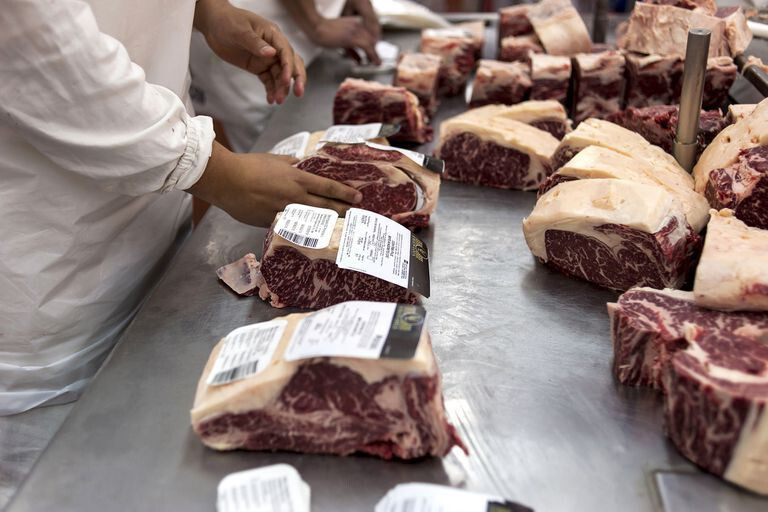
A combination of factors, including a lagging dollar, export duties, historically high cattle prices, and a stagnant international market, is creating a perfect storm for Argentina's beef processing industry. Producers Feel the Strain
One beef producer in western Buenos Aires recently faced delays when attempting to deliver cattle to a processing plant. The plant, a long-time partner, requested a 20-day postponement due to a canceled shift and reduced weekly production. This incident highlights the growing strain on producers within the industry.
Industry Leaders Voice Concerns
Pablo Guimaraenz, cattle purchasing manager at the Azul meat processing plant, acknowledges the "difficulties facing the export industry." He attributes the problem to high cattle prices resulting from low supply, coupled with elevated direct and indirect costs. Furthermore, the international market has yet to show signs of price recovery. These combined factors are making Argentine beef less competitive compared to products from other countries.
Export Numbers Plummet
The impact of these challenges is evident in export figures. In January, beef exports plummeted to 55,580 tons, a significant drop from 83,455 tons in October 2024, 81,105 tons in November, and 68,154 tons in December.
Unfavorable Price Equation
The current price scenario is making beef exports unprofitable. According to Francisco Udaquiola, a livestock analyst at AZ-Group, Argentine meat processors must pay $4.97 per kilogram of carcass weight, compared to $3.48 in Brazil, $3.65 in Paraguay, $4.45 in Uruguay, and $4.01 in Australia. This price disparity makes Argentine beef less attractive to importers.
Proposed Solutions
To address this crisis and prevent a decline in beef export revenue, Guimaraenz proposes several solutions:
Eliminate export duties: He suggests removing the 6.5% export duty on cattle.
Await international market recovery: He hopes for an eventual price recovery in the global market.
Increase cattle slaughter weight: He recommends encouraging Argentine producers to increase the slaughter weight of their cattle, which would boost the volume of beef available for export and domestic consumption.
Incentivize Heavier Cattle
To incentivize producers to raise heavier cattle, Guimaraenz suggests tax breaks and targeted credit programs. These measures would support the necessary changes in production models.
The Bottom Line
The Argentine beef industry is facing a critical juncture. The combination of economic challenges and market forces is creating a difficult environment for producers and processors alike. Swift action is needed to address these issues and ensure the long-term viability of this vital sector.
[Copyright (c) Global Economic Times. All Rights Reserved.]






























